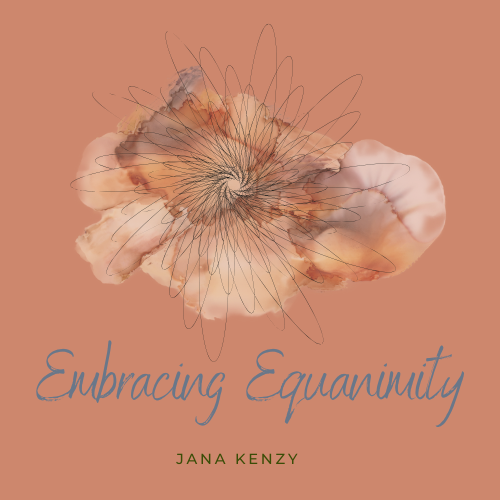Equanimity is related to ancient Stoic ideals and is closely linked to emotional regulation, cognitive flexibility, and perspective taking. People with better emotional regulation skills tend to have higher levels of equanimity.
• Virtue or integrity
• Faith or confidence
• Mindfullness
• A sense of well being
• Understanding or wisdom
• Insight
• Freedom or Letting Go
equanimity radiates warmth and is an accepting open feeling one has for other beings.

The concept of equanimity comes from a variety of spiritual and philosophical traditions, where it refers to the mental state of balance, calmness, and emotional stability. This includes the ability to remain undisturbed by both positive and negative circumstances. Equanimity is often described as a key virtue for achieving inner peace, clarity, and wisdom. Equanimity radiates warmth and is an accepting open feeling one has for other beings. It is closely linked to emotional regulation, cognitive flexibility, and perspective taking. People with better emotional regulation skills tend to have higher levels of equanimity.

The seven pillars represent essential qualities or practices that support the cultivation of equanimity. These principles guide an individual in developing a balanced mind, unshaken by life’s ups and downs.
Mindfulness is the practice of being fully present in the moment without judgment. It allows us to observe our emotions and thoughts without reacting to them. By practicing mindfulness, we learn to recognize when we are being disturbed by external or internal factors and can center ourselves back into a state of calm.
Non-attachment is the ability to engage in life fully without clinging to outcomes or possessions. It involves recognizing that all things are impermenant and that our happiness should not depend on material objects, success, or the approval of others.
Patience is crucial in maintaining equanimity, especially when faced with difficulty. It involves the ability to endure unpleasant situations, delays, or challenges without becoming frustrated or losing one’s temper. This pillar teaches us that everything has its time and that things will pass.
Compassion is the ability to empathize with others' suffering and respond with kindness, but without becoming overwhelmed by their pain. By practicing compassion, we can foster a sense of equanimity as we learn not to take on the emotional burden of others, yet still care for them.
Self-awareness is the ability to observe your own thoughts, feelings, and behaviors without judgment. It’s about understanding your emotional triggers, reactions, and patterns. Being self-aware allows you to catch yourself before you lose balance, enabling you to respond rather than react.
Balance is the core of equanimity, involving the ability to maintain a sense of inner harmony and equilibrium regardless of external circumstances. It’s about recognizing that life is full of both joys and sorrows, and learning to stay centered through both.
Clarity involves cultivating an unclouded mind, free from confusion or bias. A clear mind can discern situations accurately, making it easier to maintain equanimity even when external circumstances are chaotic. Clarity helps prevent us from making rash decisions based on emotions or misunderstandings.
The 2 Forms of Equanimity Equanimity is commonly discussed in two forms, which relate to different aspects of our inner and outer life:
This form of equanimity refers to maintaining a calm and balanced mind when faced with external situations or life events. It involves staying composed in the face of both good and bad experiences, not being overly elated by success nor overly disheartened by failure. The practice here is to remain unshaken by life’s unpredictable nature, recognizing that all experiences are temporary and that attachment to them can cause suffering.
This form of equanimity refers to maintaining inner balance and emotional stability regardless of your thoughts, feelings, or reactions. It is about not letting internal states (such as anger, fear, joy, or sadness) dictate how you behave. Through mindfulness and awareness, one learns to observe emotions without being swept away by them, allowing for more thoughtful responses to situations.
In summary, the 7 pillars of equanimity provide a roadmap for cultivating a balanced and calm mind, while the 2 forms of equanimity show how it applies both to external circumstances and our internal emotional life. Together, they help individuals navigate life with clarity, peace, and resilience. Developing these factors offers a path to awakening; living a balanced, kind, and skillful life.